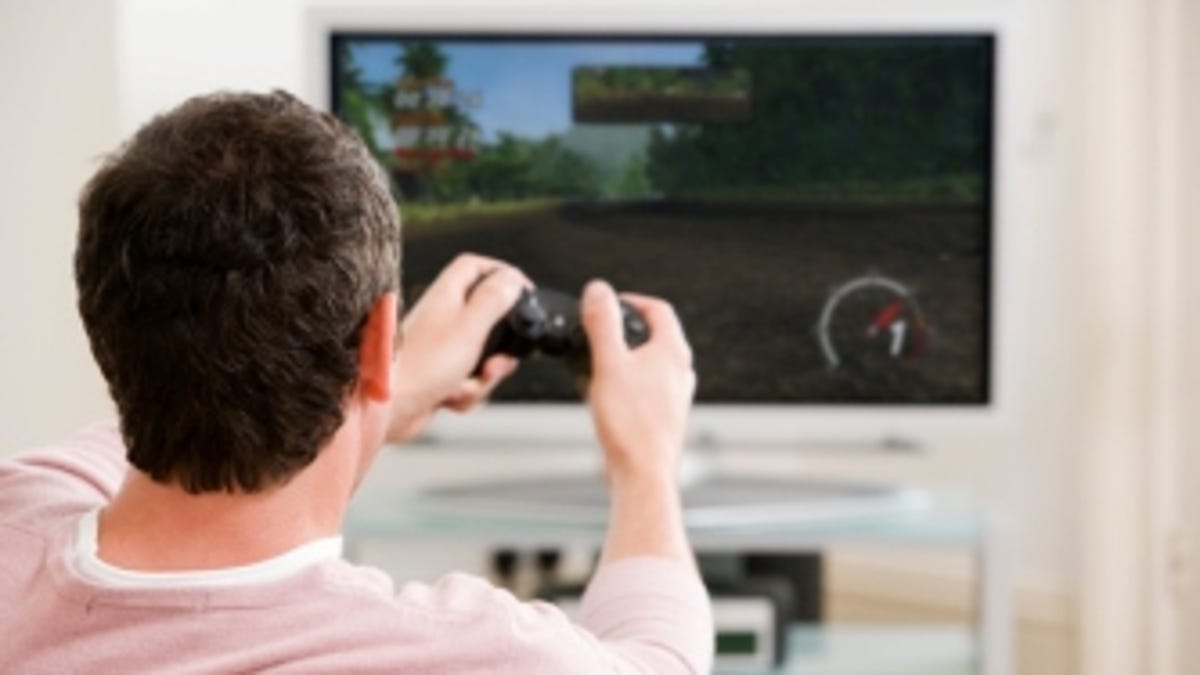Don't shoot! You're not in a video game anymore
Young hard-core gamers transfer virtual behaviors into actual ones, according to a new study.

Editors' note: This story has been substantially revised. See the correction note at bottom for details.
If you're a casual gamer or even -- gasp! -- a non-gamer, that security camera in the mall is nothing more than a surveillance device designed to keep people from stealing sugar packets from the food court. If you're an "excessive" gamer, however, that very same camera is the eye of the evil overlord and it must be avoided at all costs.
That, at least, is what's implied by the findings of a study conducted by Professor Mark Griffiths, director of the International Gaming Research Unit at Nottingham Trent University in England.
As part of ongoing research into the impact of gaming on real-life perception, Griffiths, working with psychologist Angelica Ortiz de Gortari, conducted the analysis of 1,022 experiences from 762 gamers collected in 44 online video game forums.
It was the second study in a series to explore what the researchers have termed Game Transfer Phenomena (GTP), the process by which gamers take behaviors and observations from video games and apply them to the real world.
What kind of behaviors?
Well, according to The Telegraph, other interviewees ducked out of the way of surveillance cameras and "approached game-associated objects 'with the intention to shoot them with a non-existing gun.'"
Further examples included gamers thinking non-stop about the game, expecting that something game related would happen in real life, having impulses to perform something game related, and experiencing verbal outbursts, as well as voluntary and involuntary behaviors. According to Ortiz de Gortari's blog post on the research, "While some gamers claimed these experiences were funny, amusing, or normal, others said they got surprised, felt worried, embarrassed, and that their experiences were a reason to quit playing."
Some of the more telling responses from the interviews included:
"It was scary because I would always worry that if I was tired or not paying attention I would by mistake switch over to Grand Theft Auto IV mode and drive over cars and people."
"Since I started playing Minecraft and Dwarf Fortress, I find tiled floors extremely distracting."
"Once, I (stood) at (a) store in the lighting bulbs department trying to remember why I needed to buy one. Then I remember I need it for a room in the video game I was playing."
"I was freaked out when I went outside and trees were round and not square like the video game I had been playing."
"I played Megaman one to six. After this, my arms would come up automatically like they were going to push the reload save button. It was actually kind of embarrassing."
"After playing too much Grant Thief Auto: San Andreas. I was riding my bicycle and I (needed) to brake. I thought: 'where is the R1 button for the handbrake'. I got scared when I (understood) what had just happened."
Griffiths said: "The studies that we have carried out all appear to suggest that gaming excessively can cause players in some cases to carry out behaviors from the video game in real life situations. Most of these are relatively short-lived but in a minority of cases there may be consequences that may cause harm to the player and/or those around them."
So if you find yourself thinking it's OK to try to leap from one rooftop to another because you have two more lives, or trying to activate a forcefield instead of ducking when someone throws a right hook your way, you just might want to get in touch with Griffiths and offer yourself up for his next research project.
Correction at 7:10 a.m. PT February 28: A previous version of this story referenced the first study conducted by the International Gaming Research Unit at Nottingham Trent University. It has been updated to report on the second, more recent study.

